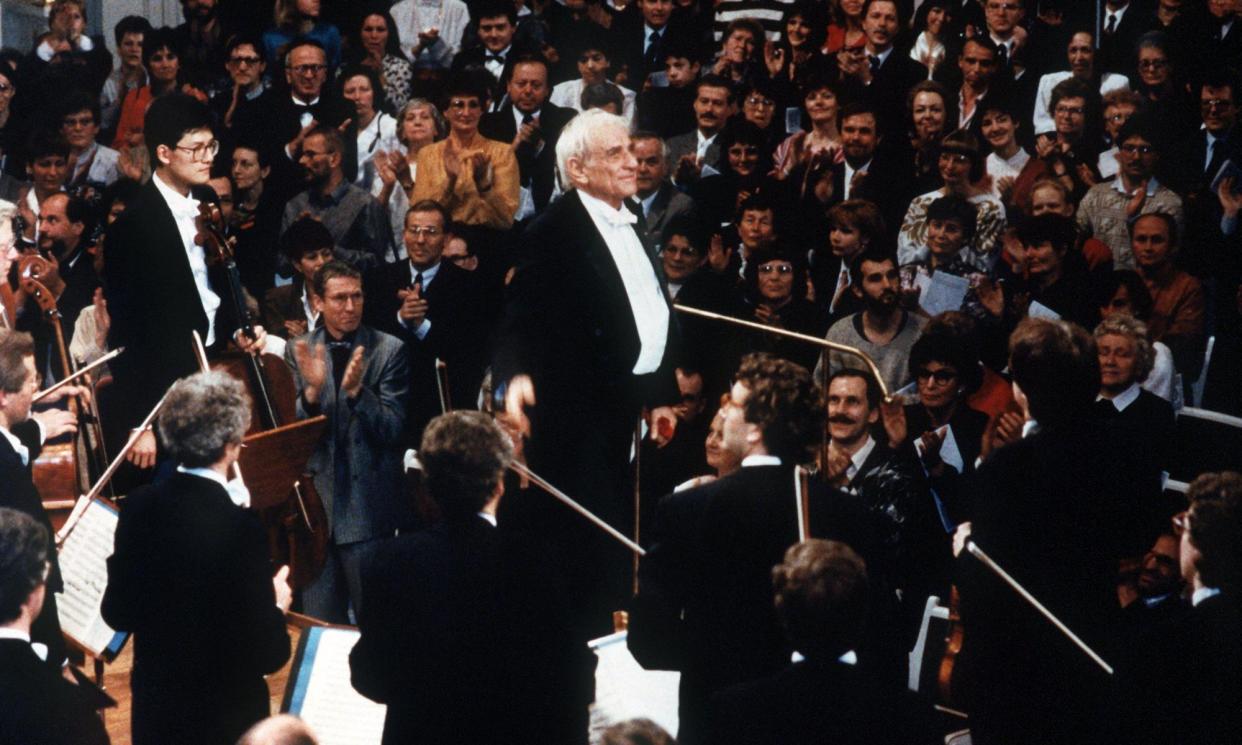The factional anthem: why dictators, leaders and protesters have fought over Beethoven’s Ninth

There was nothing unusual – the world being as it is – in the fact that Hulk Hogan was one of more erudite speakers at the recent Republican National Convention, performing with typical subtlety, nuance and jacket-throwing. What was bizarre was what happened next: Melania Trump’s non-speaking appearance and, in particular, the music that accompanied her entrance. Melania walked on to the sound of Beethoven’s Ninth Symphony. And not the Ode to Joy of the finale either, but the rapt intensity of the slow movement, as Beethoven unfurls the first variation of the opening melody. In most contexts, this music is a balm for the soul. At the RNC, it was a moment of absurdist drama.
What did it mean? Was Melania celebrating the 200th anniversary of arguably the most significant premiere in western music? And, by entering to an excerpt from the Ninth that few are likely to have identified, was she trying to improve the cultural horizons of her party and, by extension, the American people?
In which case, she did more for Beethoven than she might have realised. For that’s the whole point of the Ninth – to build towards a song for the whole of humanity in the final movement. There’s that spine-tingling moment when we hear the first voice, as the bass soloist sings Beethoven’s own words: “Oh friends – not these tones!” By which he means the previous three movements, 45 minutes of orchestral music. “Let’s raise our voices,” the soloist continues, “with more pleasing and joyful sounds!” Then the choir revels in the melody the symphony has been reaching for – setting to music Friedrich Schiller’s 1785 poem Ode to Joy, in which all people become brothers and sisters.
OK, Beethoven’s idealism hasn’t worked. Humanity hasn’t come together since the work’s first performances in Vienna in 1824. Yet the Ninth isn’t only about a moment of joyful triumph. It’s about an existential process that grows from an opening darkness. The first movement begins as a primordial creation myth and closes with a funeral march. Then comes the unprecedented violence of its scherzo, the radiance of the slow movement, followed by the breathtaking complexity and diversity of the finale.
At this year’s Proms, Aurora Orchestra will perform the Ninth. In the first half, there is a dramatised introduction, with actors as well as musicians exploring the background to the symphony, in terms of Beethoven’s illness, hearing loss and personal life; in the second, the performers will play from memory – all of which opens up yet another world of musical possibility. Yet, for all its richness, the Ninth has often been cruelly treated. The work has been manipulated, reduced to political sloganeering, and co-opted as a song of protest, in accordance with various rulers, societies and ideologies. What have we done to Beethoven’s Ninth – and what has it done to us?
Students blasted out the Ninth as tanks rolled in to Tiananmen Square. It was also used by Soviet Russia as a hymn of communist ideology
In 2017, the then-leaders of the G20 arrived in Germany, from Putin to Merkel, Macron to May. They were all treated to the Ninth at Hamburg’s nearly billion-euro Elbphilharmonie concert hall. Merkel might have intended it as a symbol of global unity – but Putin’s idea of universal brotherhood was very different to hers, as was Trump’s. What’s more, as Merkel knew, the history of the Ninth in Germany is not just as an unrealisable political ideal. It is also a story of who the “brotherhood” of the Ode excludes. Outside the hall, where Beethoven would have wanted his music most to be heard, riots flared as anti-capitalist protesters took to the streets.
It was all very different in 1989, when the Berlin Wall fell and Leonard Bernstein conducted an orchestra of musicians from the west and the east in a performance of the Ninth at the Konzerthaus, in what was once East Berlin. Televised all over the world, here was the Ode to Joy transformed into the Ode to Freedom (“Freude” was changed to “Freiheit”). That tune – by then the anthem of the European Union – soundtracked a global hope for lasting change. That same year, in China’s Tiananmen Square, students blasted out the Ninth as the tanks rolled in.
Yet the Ninth was also the national anthem of apartheid Rhodesia. It was used by Soviet Russia as a hymn of communist ideology. To the Nazis, it was a symbol of German cultural supremacy. Their Ode to Joy was an Ode to Hate, to exclusion and division. The conductor Wilhelm Furtwängler knew what was happening. In his performance of the Ninth for Hitler’s birthday in 1942 with the Berlin Philharmonic, he unleashes one of the most terrifying performances ever recorded. The blaze of D major glory becomes a bombardment of orchestral and choral explosions, as Furtwängler makes the music tear at the limits of the possible. All at once, this musical utopia is turned into a scream, a protest, a warning. Furtwängler shakes Goebbels’s hand at the end, the world and all its horrors flooding in.
Where does this litany of use and misuse leave the Ninth today? Perhaps it’s only as tattered and riven by history as we are, with every fresh performance offering a chance to make the world anew. The Ukrainian Freedom Orchestra recently toured the Ninth, with one performance at St Paul’s in London, a clarion call for liberty. As the gap between its ideals and the reality of our world widens, the Ninth only becomes more necessary.
• Prom 42: Beethoven’s Ninth by Heart is at the Royal Albert Hall, London, on 21 August


